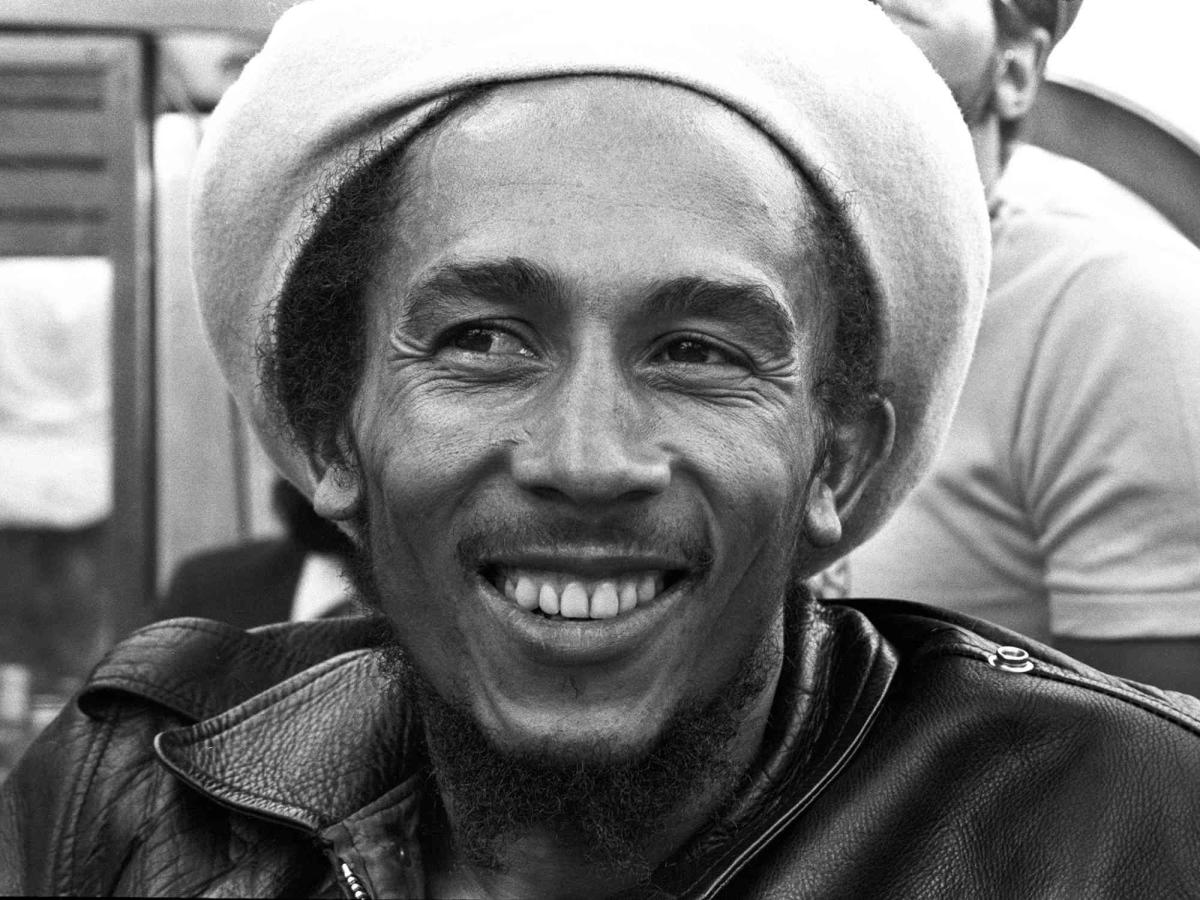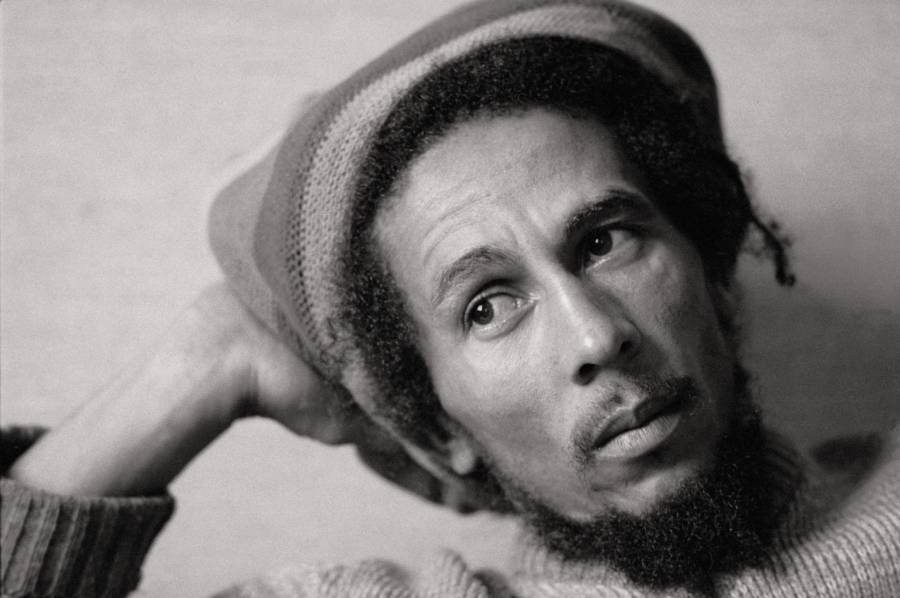When we talk about Bob Marley, we're not just talking about a musician. We're talking about a cultural phenomenon, a symbol of peace, love, and resistance. Bob Marley died on May 11, 1981, but his music and message continue to resonate with millions around the world. His passing was a shock to the world, but his legacy lives on in every corner of the globe.
Bob Marley wasn’t just a reggae star; he was a revolutionary who used his voice to fight for justice and equality. His death marked the end of an era, but it also solidified his place in history as one of the most influential musicians of all time. His music transcends generations, and his impact is still felt today.
As we dive into the story of Bob Marley's death, we'll explore the events leading up to that fateful day, the causes behind it, and how his legacy continues to inspire millions. This isn’t just a story about loss; it’s a celebration of a life that changed the world forever.
Let’s break this down step by step, so you can fully understand the significance of Bob Marley's death and the lasting impact he left on the world. Here's a quick guide to what we'll cover:
- Bob Marley Biography
- Bob Marley Died Date
- Cause of Death
- Legacy
- Impact on Music and Culture
- Memorials and Tributes
- Music and Albums
- Family and Personal Life
- Fans and Followers
- The Future of Bob Marley's Legacy
Bob Marley Biography
Before we dive into the specifics of Bob Marley's death, let's take a moment to understand the man behind the music. Bob Marley was born on February 6, 1945, in Nine Mile, Jamaica. His full name was Nesta Robert Marley, and his life was a blend of struggles, triumphs, and a deep commitment to his beliefs.
Bob grew up in a world of contrasts. His father, Norval Marley, was a white Jamaican of English descent, while his mother, Cedella Booker, was a Black Jamaican. This unique background shaped his worldview and fueled his passion for equality and justice.
Early Life and Career
Bob's journey into music began in the early 1960s when he formed the Wailers with Peter Tosh and Bunny Wailer. The group quickly gained popularity in Jamaica, and their sound evolved from ska to rocksteady and eventually reggae. Songs like "Simmer Down" and "Trench Town Rock" became anthems for the Jamaican people.
By the 1970s, Bob Marley had become an international sensation. His albums, including "Catch a Fire," "Burnin'," and "Exodus," brought reggae music to the global stage. His message of love, unity, and resistance resonated with listeners worldwide.
Bob Marley Died Date
Bob Marley's death on May 11, 1981, was a shock to the world. At just 36 years old, the reggae legend passed away, leaving behind a legacy that would continue to inspire generations. But what led to this tragic event? Let’s explore the details.
Bob had been battling cancer for several years before his death. The cancer initially started as a melanoma on his toe, but despite medical advice, he refused to have it amputated due to his Rastafarian beliefs. The cancer eventually spread to other parts of his body, and by 1980, it had become terminal.
Final Days
In the months leading up to his death, Bob continued to perform and record music, even as his health deteriorated. His final concert was on September 23, 1980, in Pittsburgh, Pennsylvania. Shortly after, he was admitted to a hospital in Germany, where he received treatment under the care of Dr. Josef Issels.
Despite the best efforts of the medical team, Bob's condition worsened, and he passed away in Miami, Florida, on May 11, 1981. His death was a heartbreaking moment for his fans and the world, but it also solidified his status as a musical icon.
Cause of Death
The official cause of Bob Marley's death was acral lentiginous melanoma, a rare form of skin cancer. This type of melanoma often affects people with darker skin tones, and unfortunately, it can be difficult to detect early. Bob's melanoma was initially diagnosed in 1977, but it wasn’t treated aggressively enough to stop its progression.
Many have speculated about the reasons behind Bob's decision not to amputate his toe. Some say it was due to his Rastafarian beliefs, which emphasize the importance of keeping the body intact. Others suggest that he didn’t fully understand the severity of the cancer at the time. Whatever the reason, the decision ultimately cost him his life.
Legacy
Bob Marley's legacy extends far beyond his music. He became a symbol of peace, love, and resistance, and his influence can be seen in various aspects of modern culture. His music continues to inspire millions, and his message of unity and equality remains relevant today.
Impact on Reggae Music
Bob Marley is often credited with bringing reggae music to the global stage. His unique sound and powerful lyrics made reggae a force to be reckoned with in the music industry. Artists from all genres have cited Bob as an influence, and his music continues to be celebrated worldwide.
Some of his most famous songs, such as "No Woman, No Cry," "One Love," and "Redemption Song," have become timeless classics. These tracks not only showcase his musical talent but also his ability to convey deep emotions and important messages through his art.
Impact on Music and Culture
Bob Marley's influence goes beyond music. He was a cultural icon who used his platform to advocate for social justice and equality. His Rastafarian beliefs, which emphasize peace, love, and unity, have inspired countless individuals and movements around the world.
Bob's impact on fashion, art, and even politics cannot be overstated. His dreadlocks, for example, became a symbol of resistance and identity for many people. His concerts were more than just musical events; they were gatherings of like-minded individuals who shared his vision for a better world.
Global Influence
Bob Marley's music has been embraced by people from all walks of life. His songs have been translated into multiple languages, and his concerts have been held in countries across the globe. His ability to connect with diverse audiences is a testament to his universal appeal.
Even today, Bob's music continues to inspire new generations. Young artists and activists look to him as a source of inspiration, and his message of love and unity remains as relevant as ever.
Memorials and Tributes
Since Bob Marley's death, numerous memorials and tributes have been dedicated to his memory. In Jamaica, his birthplace of Nine Mile has become a shrine for fans and visitors. The Bob Marley Museum in Kingston, Jamaica, is another popular destination for those looking to learn more about his life and legacy.
Each year, fans from around the world gather to celebrate Bob's birthday on February 6. These events, known as "Bob Marley Day," feature concerts, festivals, and other activities in honor of the reggae legend. The celebrations serve as a reminder of Bob's enduring influence and the impact he had on the world.
Memorial Sites
Bob Marley's final resting place is in Nine Mile, where he was laid to rest alongside his mother. The site has become a pilgrimage destination for fans and admirers, and it continues to attract thousands of visitors each year. The Bob Marley Mausoleum is a testament to his lasting legacy and the love he inspired in so many people.
Music and Albums
Bob Marley's discography is a treasure trove of reggae classics. From his early days with the Wailers to his solo career, Bob produced some of the most iconic music in history. His albums, including "Catch a Fire," "Exodus," and "Legend," have sold millions of copies worldwide and continue to be celebrated by fans of all ages.
Top Albums
- Exodus (1977): Often considered Bob's greatest album, "Exodus" features hits like "Jamming," "Waiting in Vain," and "One Love."
- Legend (1984): Released posthumously, "Legend" is a greatest hits collection that includes some of Bob's most famous tracks.
- Uprising (1980): This album features "Redemption Song," one of Bob's most powerful and personal songs.
Bob's music continues to be celebrated for its depth, emotion, and social commentary. His ability to blend catchy melodies with meaningful lyrics set him apart from his peers and ensured his place in music history.
Family and Personal Life
Bob Marley's personal life was as fascinating as his music career. He was married to Rita Marley, and together they had several children. Bob also had children from other relationships, and his family remains an important part of his legacy today.
His children, including Ziggy Marley, Stephen Marley, and Damian Marley, have followed in his footsteps and become successful musicians in their own right. The Marley family continues to carry on Bob's legacy through music, activism, and philanthropy.
Family Table
| Name | Relation | Occupation |
|---|---|---|
| Rita Marley | Wife | Singer, Activist |
| Ziggy Marley | Son | Musician |
| Stephen Marley | Son | Musician |
| Damian Marley | Son | Musician |
Fans and Followers
Bob Marley's fan base is one of the most dedicated and passionate in the world. His music has touched the lives of millions, and his fans come from all corners of the globe. Whether they're listening to his music, attending concerts, or visiting memorials, Bob's followers continue to keep his legacy alive.
Many fans have shared stories of how Bob's music has inspired them to make positive changes in their lives. His message of love and unity continues to resonate with people of all ages and backgrounds, proving that his influence is timeless.
Global Fanbase
Bob's music has been embraced by fans from all over the world. From Jamaica to Japan, his concerts have brought people together in celebration of his artistry and message. His fans are a testament to his universal appeal and the impact he had on the world.
The Future of Bob Marley's Legacy
As we look to the future, it's clear that Bob Marley's legacy will continue to thrive. His music, message, and influence will inspire new generations for years to come. The Marley family remains committed to preserving his legacy through music, activism, and philanthropy.
Bob's impact on the world cannot be overstated. He was more than just a musician; he was a symbol of hope, love, and resistance. His life and music remind us that even in the face of adversity, we can make a difference in the world.
Looking Ahead
As we celebrate Bob Marley's life and legacy, we must also look to the future. How can we continue to honor his memory and ensure that his message of love and unity lives on? By embracing his ideals and using our voices to create positive change, we can keep his spirit alive in the world today.
So, the next time you listen to Bob Marley's music, take a moment to reflect on the impact he had on the world. His life may have been cut short, but his legacy continues to


